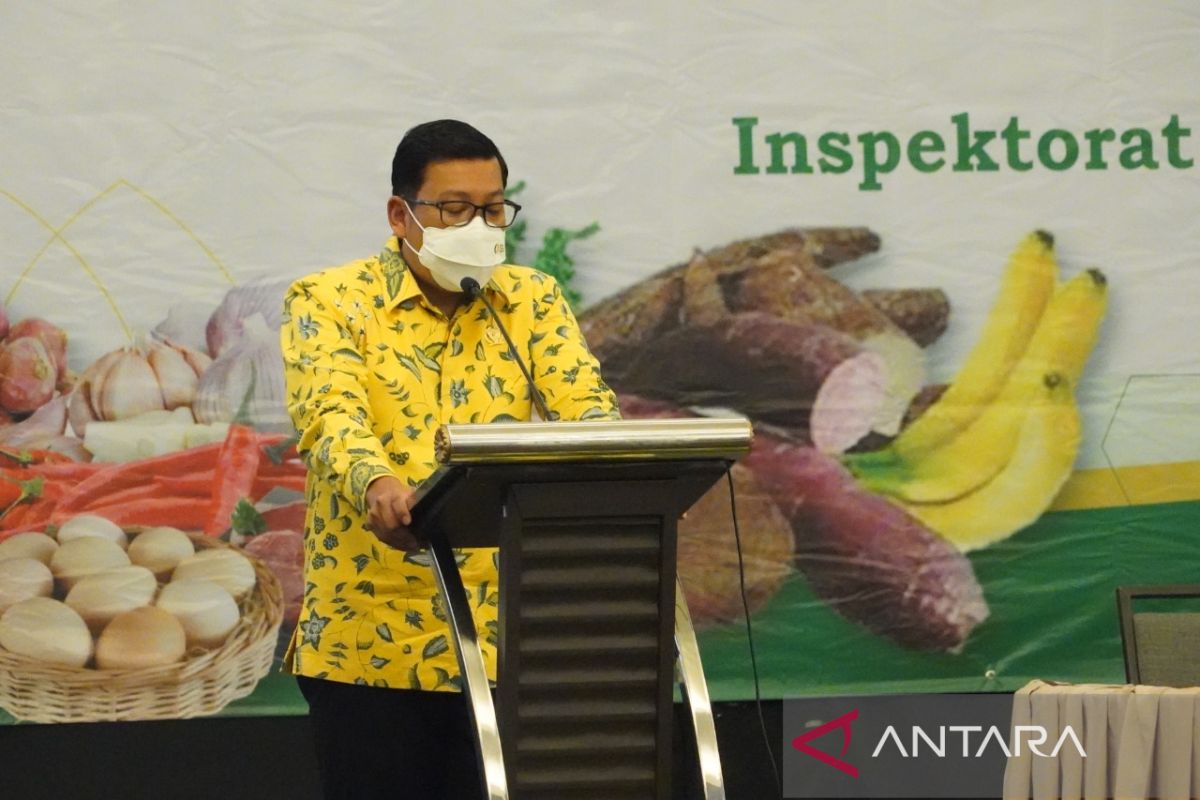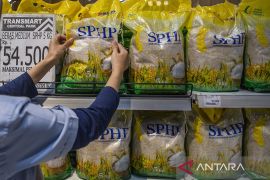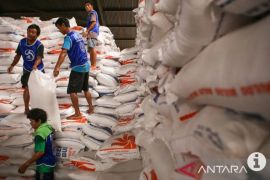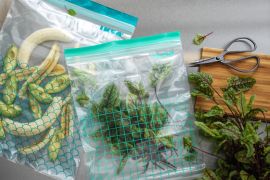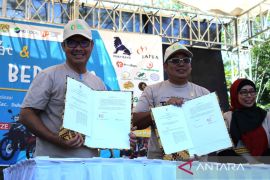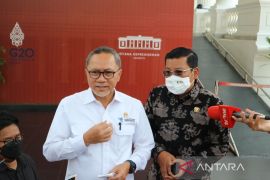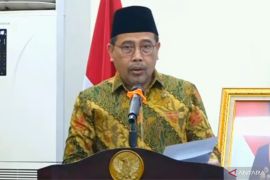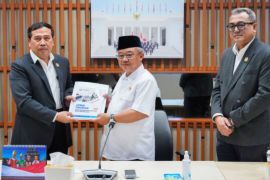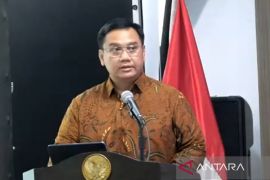The importance of close collaboration with the Ombudsman and BPKP was highlighted by NFA Head Arief Prasetyo Adi during a meeting here, on Monday .
The meeting was held to provide participants with technical guidelines on strengthening the government's internal control system (SPIP) and public services by implementing good corporate governance principles at the NFA.
The implementation of national food programs needs to be supported by a good monitoring system to ensure that the budget realization and policies have a maximum impact on efforts to meet the people's demand for food, strengthen the national food ecosystem, and economic growth, Adi said.
To this end, the NFA is ready to involve the related government agencies in supervising the implementation of the country's strategic food programs in order to enable the agency to achieve the ideal goals, he added.
Adi further said that the NFA cannot work alone in ensuring that the food policies are implemented well. Therefore, the agency must be backed by good external supervision to prevent it from wrongdoing.
"Food is a strategic sector that affects the basic needs of the people at large. So, it is imperative to ensure that all related policies are implemented well,” he added.
In this regard, collaboration with the Ombudsman and BPKP is a need, he said, adding that the formulation of the technical guidelines on strengthening the SPIP and public services is the first step of this collaboration.
The Bogor meeting was joined by not only NFA staff but also officials from the food agencies of 34 provinces and 514 districts/cities across Indonesia, he informed.
The NFA has urged the Indonesian Ombudsman to help safeguard all policies that it must implement and become its strategic partner in ensuring that all food policies get implemented properly, he said.
Adi also highlighted the importance of BPKP's role in supervising the implementation of SPIP within the NFA, as mandated by Government Regulation No.60/2008.
Related news: Trade Ministry collects Rp2.5 billion for Cianjur quake victims
The NFA was formed on the basis of Presidential Regulation No. 66 of 2021 as part of the government's efforts to help stabilize staple food supplies in Indonesia.
The agency has been tasked with monitoring nine staple foods, namely rice, soybeans, eggs, corn, onions and shallots, sugar, chili, bovine meat, and poultry meat.
Presidential Regulation No.125/2022 on government food reserves has added fish and cooking oil to the list of staple-food commodities.
According to Adi, the NFA has strategic authority in determining the price stabilization policy, food distribution, export and import of food commodities, the government's food reserve stock managed by state-owned food enterprises, and the pricing of government procurements.
Related news: NFA offers to help mobilize food to regions facing shortages
Therefore, strengthening the agency's internal monitoring system is vital, and it is relevant to President Joko Widodo's call for prioritizing accountability, effectiveness, and efficiency in implementing the government's programs, he added.
Meanwhile, Yeka Hendra Fatika, a member of the Indonesian Ombudsman, welcomed the NFA's request for collaboration, saying that the agency needs to focus on how to strengthen regulations related to national food planning.
He argued that strengthening the regulations is important because failing to implement national food planning properly would lead to instability in the supply chain, which would affect the inflation rate.
Related news: Ministry optimistic food industry to grow amid global recession risk
Related news: NFA optimistic food mobilization continue to be improved
Reporter: Rahmad Nasution
Editor: Fardah Assegaf
Copyright © ANTARA 2022
